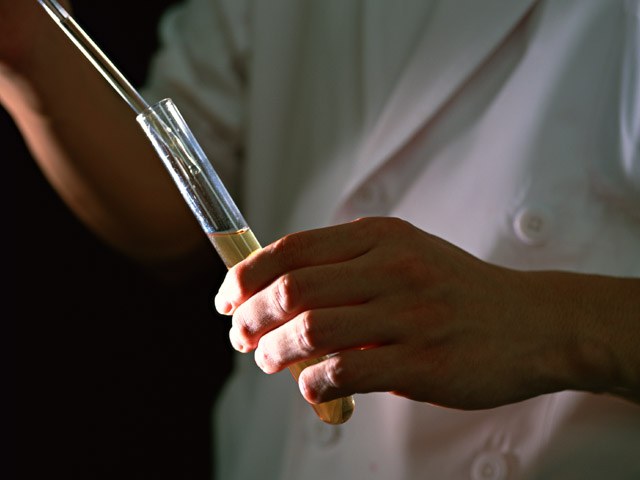You will need
- - the direction of a physician for a blood test.
Instruction
1
Discover from the physician referral for blood test for antibodies. In it, the doctor pinpoints the group of the immunoglobulin to be examined. Indicate the direction of the nurse in the laboratory. So you're sure not confused, complex terms, and the health workers understood you correctly.
2
Change your diet for 2-3 days before testing for antibodies. Blood samples taken from the veins, because the concentration of immunoglobulins is highest in the serum. To influence the outcome of any substances entering into the blood stream from digested food.
3
Refrain from fatty, spicy, smoked, fried food. Minimize the amount of salt in the dishes. Not pripravljena food mayonnaise and vinegar. Eat more vegetables and greens. Refrain from soft drinks (coffee, tea) and juices and of course alcohol.
4
On the day of analysis you will have to starve until the end of the procedure. The blood is strictly on an empty stomach. The last meal should consist of not less than 8 hours before the study. Dine on the eve tightly. Valid only in the morning, drink pure non-carbonated water.
5
Do not take drug during the 2-3 days prior to blood sampling. Therapeutic drugs, e.g., antibiotics, actively fight pathogens in the blood. Their presence may distort the objective picture of the development of antibodies by the body. If you stop taking medicines is impossible for health reasons, notify your doctor.
6
Do not visit before the blood test physiotherapy (massage, warm up, etc.). Transfer to a later date conducting fluoroscopy, MRI, biopsy, rectal examinations, etc. Your doctor also needs to know: what antibodies have already been discovered and you did get a blood transfusion.
7
Take it easy and relax before attending the treatment room. The results of the analysis can be affected too fast walking, climbing stairs. Try to appease the excitement and discard negative thoughts.
8
Inform the nurse about the features of your body that can occur during the procedure. These include: loss of consciousness, dizziness, increase (decrease) in blood pressure, poor blood clotting, etc. back and bend your arm at the elbow and hold them tight. Don't go straight from the lab, sit in the hallway. When any painful symptoms, contact your nurse.
